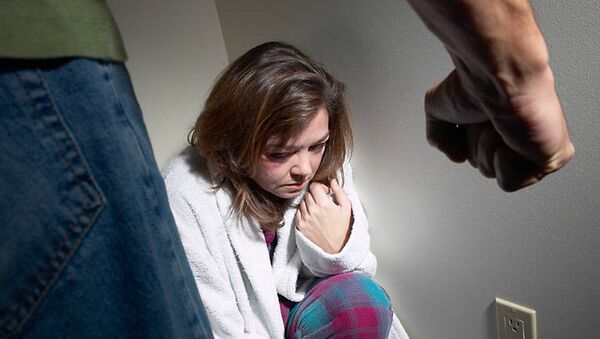MOSCOW, January 16 (RIA Novosti) – A popular Russian proverb about male-female relationships says, roughly, “if he beats you, it means he loves you.” But, in the wake of a Moscow journalist’s gruesome murder by her husband, advocates of a more enlightened approach to domestic violence said on Tuesday that Russia needs a major attitude change, better laws and data collection, and shelters for battered women.
Like most comparable crimes, the case of Alexei Kabanov – who confessed last week to strangling and dismembering his wife, 39-year-old mother of three Irina Cherska, in their Moscow apartment – is not likely to be counted as domestic violence, which experts say affects thousands, if not millions, of Russian women.
“There is no such article in the Criminal Code, no legislation [on domestic violence],” Maria Mokhova, head of Syostry, or Sisters, a crisis center for victims of sexual abuse, said at a press conference.
“The government is not interested in this subject, so there are no statistics,” she added.
While there are no official figures on domestic abuse, some surveys suggest that half of women in Russia have been subjected to violence by a man, Mokhova said, and called on the government to introduce legislation to help track and combat the problem.
About 10,000 women are killed annually by their relatives or partners in Russia, according to Anna, a nongovernmental center for abused women.
Olga Kostina, who heads the nongovernmental victims’ organization Soprotivleniye, or Resistance, agreed on the dire need for new legal standards and, in particular, a network of shelters across the country.
“There are still no places where victims can go to escape violence at home,” Kostina said.
As of 2009, Russia, whose population numbers 143 million, had 20 crisis centers nationwide, offering counseling and only short-term accommodation at best.
Moreover, even the handful of state-run crisis centers often fail to help in cases when victims don’t have local residency permits.
“If a woman is not a Muscovite, she won’t be allowed to stay at a Moscow crisis center,” Kostina told RIA Novosti. She added that there had been an attempt to create a medical center for human-trafficking victims with help from the US government a few years ago, but the center didn’t last long, for reasons unclear to her.
Mikhail Vinogradov, director of a psychological support center, said that many Russian women “turn a blind eye to apparent aggressive behavior by their men” that could be a sign of more serious abuse to come.
In the case of Kabanov – who, before confessing his crime, had claimed for days that his wife had gone missing – several family acquaintances alleged on social networks that he routinely beat her, though the accusations could not be verified.
Soprotivleniye’s Kostina, who is also a member of the Public Chamber, a Kremlin-founded watchdog on social issues, said Russian society has to battle the stereotypes that “one shouldn’t air one’s dirty laundry in public” and that social services should stay out of family affairs.
Kabanov, the 38-year-old co-founder of a once-popular Moscow cafe and club, faces a maximum punishment of 20 years in jail if convicted on murder charges.


